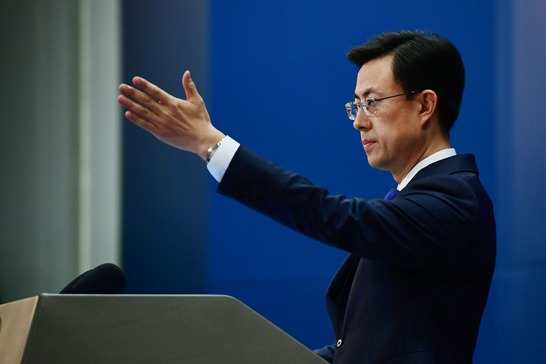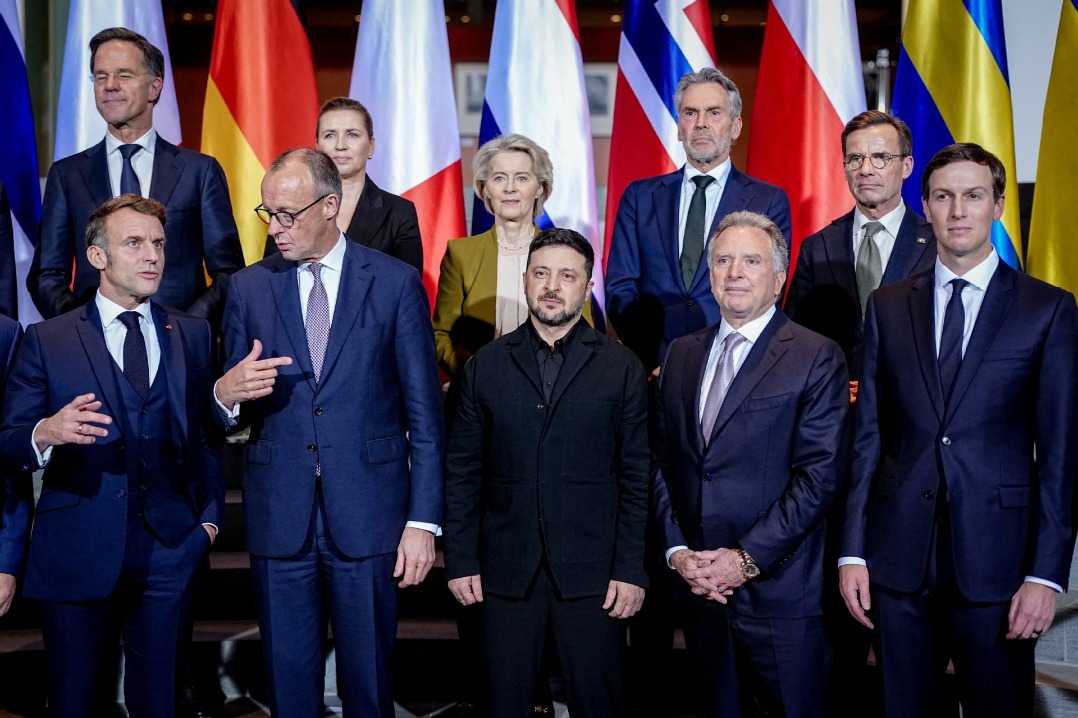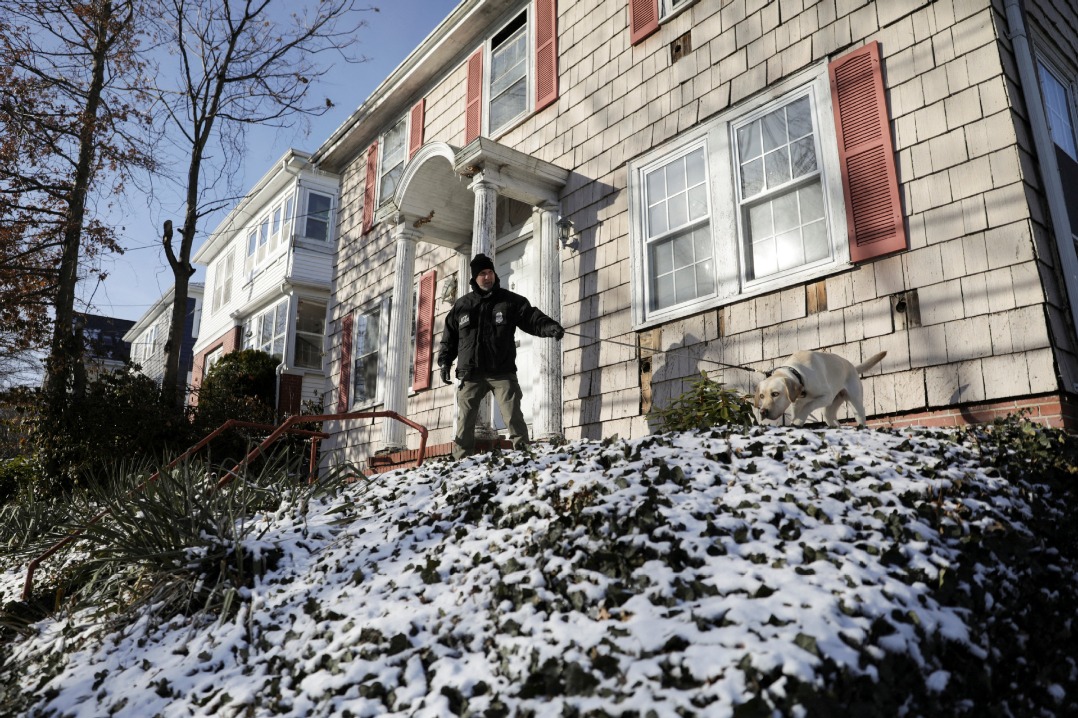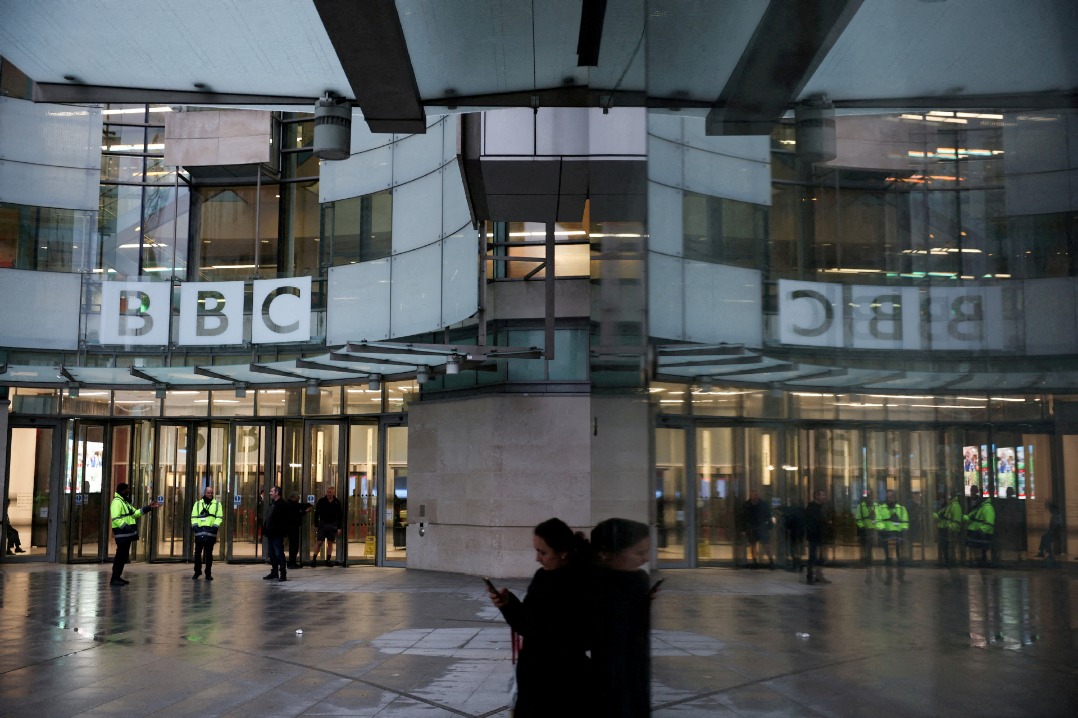Plenty of talks but little to agree on over N. Ireland

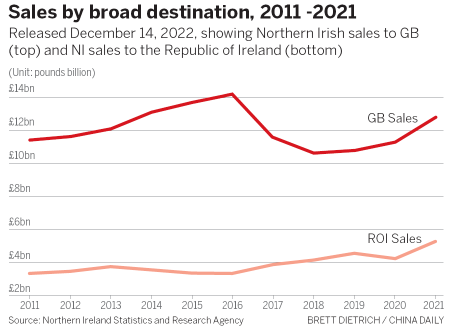
Much work has been done to mitigate the impact on Northern Ireland of the UK's separation from the European Union, but some disruptions have been unavoidable.
Northern Ireland, politically part of the United Kingdom but geographically isolated, shares the UK's only land border with an EU member state, the Republic of Ireland.
During Brexit talks, the EU and the UK agreed on legislation called the Northern Ireland Protocol that promised no new checks on goods crossing that border.
However, those sending goods across the Irish Sea from Great Britain — England, Scotland and Wales — have faced significant disruptions, which have reportedly eased as businesses have become more familiar with new customs procedures.
The legislation aimed to assure the integrity of the EU's single market for goods, and to facilitate unfettered access for goods from Northern Ireland to the UK market, and the inclusion of such goods in free-trade agreements between the UK and third countries.
But the protocol's conditions remain sharply divisive, with many Brexit supporters and Unionists in Northern Ireland — those whose loyalty is to Britain — fearing that they erode Northern Ireland's place in the UK and damage the economy.
This has caused a boycott — in place for almost a year — of the regional power-sharing government by the pro-British Democratic Unionist Party, or DUP, in protest.
Data released in December indicating that the protocol has boosted trade flows both ways between Great Britain and Northern Ireland has further inflamed the dispute between pro- and anti-protocol parties.
The figures, from the Northern Ireland Statistics and Research Agency, suggest trade rose by 7 percent in the year after the protocol was introduced in late 2020, equating to a boost of more than 1 billion pounds ($1.2 billion).
The pro-protocol Sinn Fein and the Social Democratic and Labour Party, or SDLP, say this disproves claims that the legislation is constricting the province's economy.
SDLP Brexit spokesman Matthew O'Toole said: "This data should finally put to bed the idea that protocol is ruining the Northern Ireland economy.
"For nearly two years, DUP politicians and British ministers have exaggerated and distorted the effect of the protocol on trade flows and business across the Irish Sea."
The anti-protocol DUP responds that the figures may be distorted by the protocol, or EU law, not yet being fully implemented, and trade remains propped up by an extended grace period that temporarily simplifies procedures to protect against any excessively negative impact.
DUP leader Jeffrey Donaldson said: "Were these vital protections removed then we know businesses here have said it would have a devastating impact, including the halting of vital supply chains within 48 hours. The continued importance of trade within the UK highlights how barriers to trade inside the United Kingdom are not just constitutionally but economically damaging."
The grace periods have all been unilaterally extended by the UK, without the EU's agreement. The EU has agreed, however, not to take formal legal action while the two sides continue discussions.
Continuing problem
Ongoing negotiations between the EU and the UK have sought to resolve the continuing problem of Northern Ireland's trade status post-Brexit.
The DUP last week rejected talk of progress over the territory's post-Brexit future.
"I don't think we are anywhere close to a deal," Donaldson told BBC radio after Northern Irish leaders met with UK Foreign Secretary James Cleverly. "At the moment, while some progress has been made on some technical issues, there are major political issues in those negotiations that have not yet been addressed."
Ireland's leader Leo Varadkar, accompanied by his deputy Micheal Martin, visited Belfast a day later.
Recently, business group Logistics UK emphasized to the UK government the need to reduce administrative and cost burdens, and called for a renewed protocol deal "that delivers stability, certainty, simplicity and affordability for businesses".
However, DUP member of Parliament Gregory Campbell said this agreement on one issue did not address the party's wider protocol concerns.
"At the bottom line from all of this there are two fundamental issues that flow from the protocol problem: one is the constitutional political implications that it provides for Northern Ireland; the other is the trading implications," he said. "We need to hear the details of what this does for trading. It might just shift the burden slightly but it doesn't resolve the overall problem."
Agencies contributed to this story.
jonathan@mail.chinadailyuk.com
















